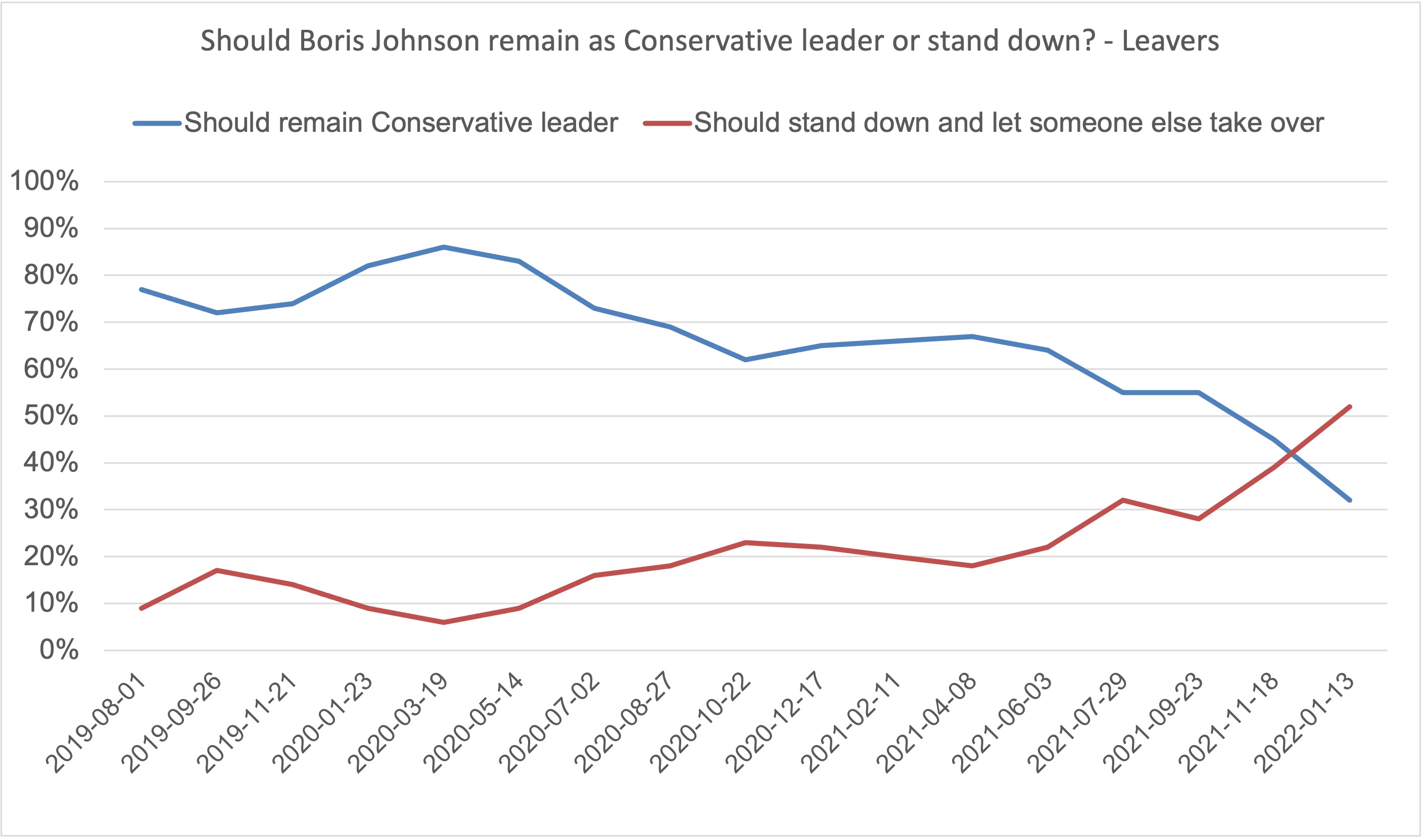Since coming to power, the Conservatives’ share of the vote has declined from almost 50% to 32%. While it was partly supported by the vaccine rollout, it has now entered a new decline. Were an election held tomorrow, Labour would be the largest party, albeit short of majority.
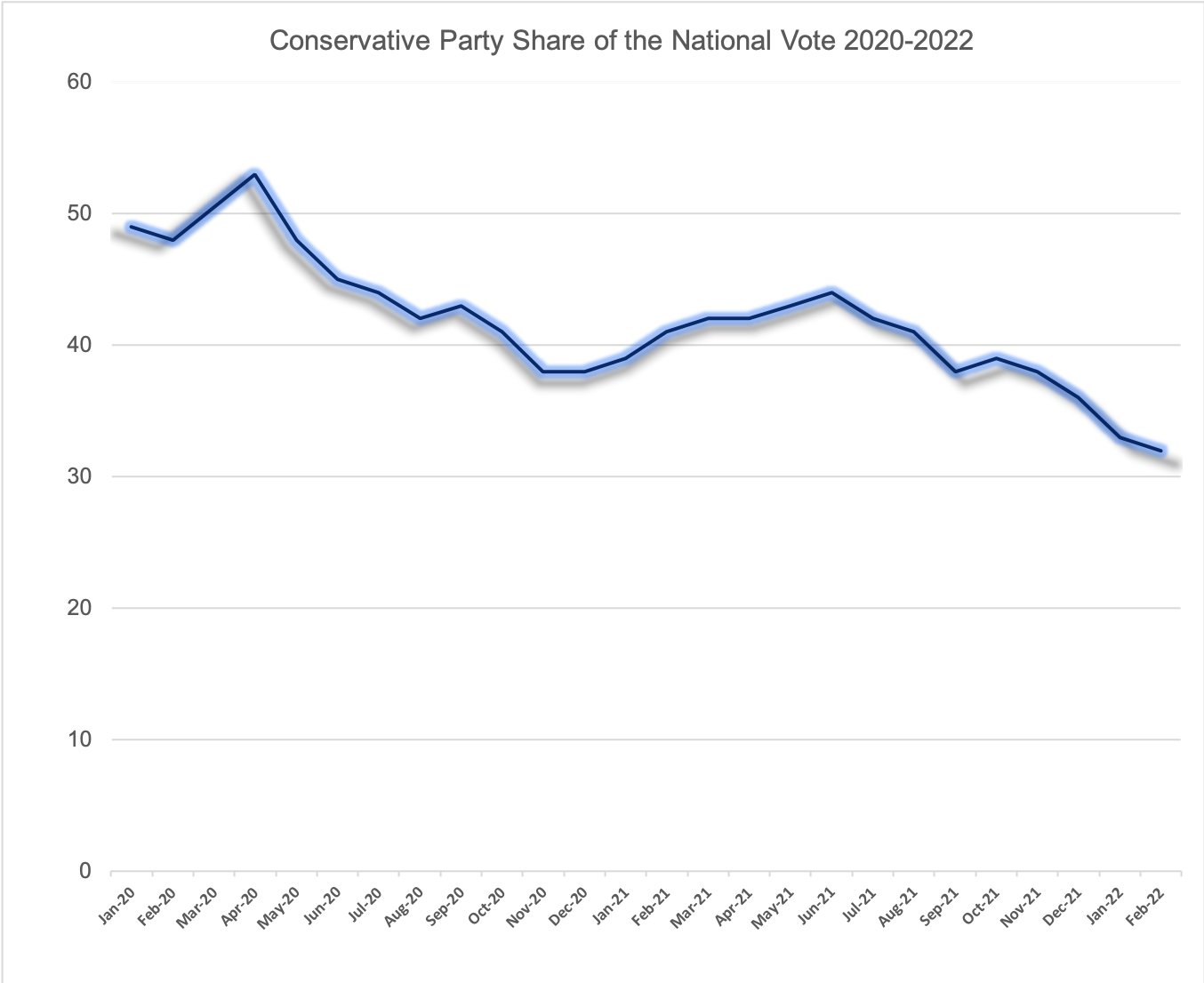
Much of this is about people who voted for Boris Johnson in 2019 walking away. Since early 2020, support among 2019 Conservatives has crashed by 20 points with a particularly sharp drop since partygate.
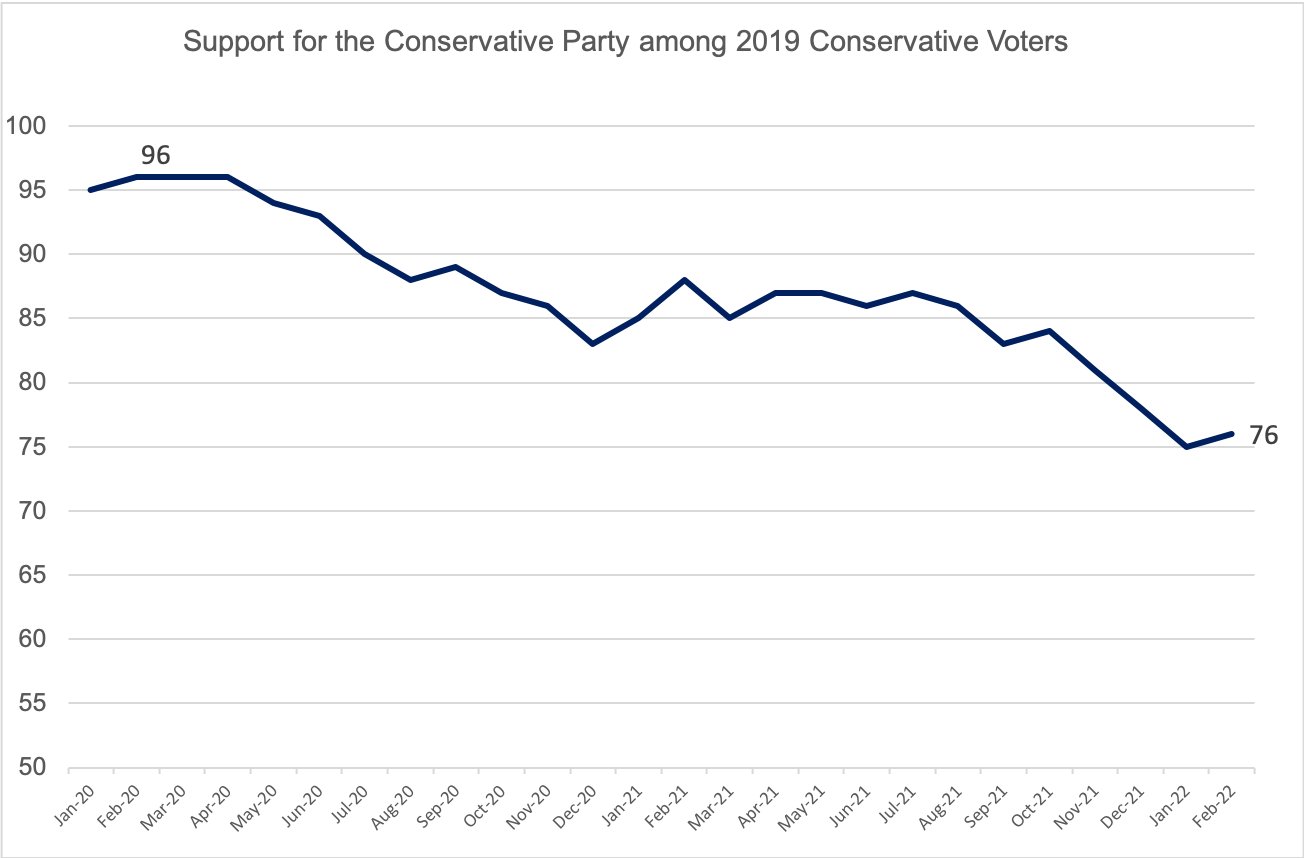
These losses are especially visible among the Brexit voters who voted for Johnson in 2019 to “Get Brexit Done”. Johnson has lost support among Conservative Remainers but they are a much smaller part of his new electorate. His support among Leavers is now down nearly 20 points.
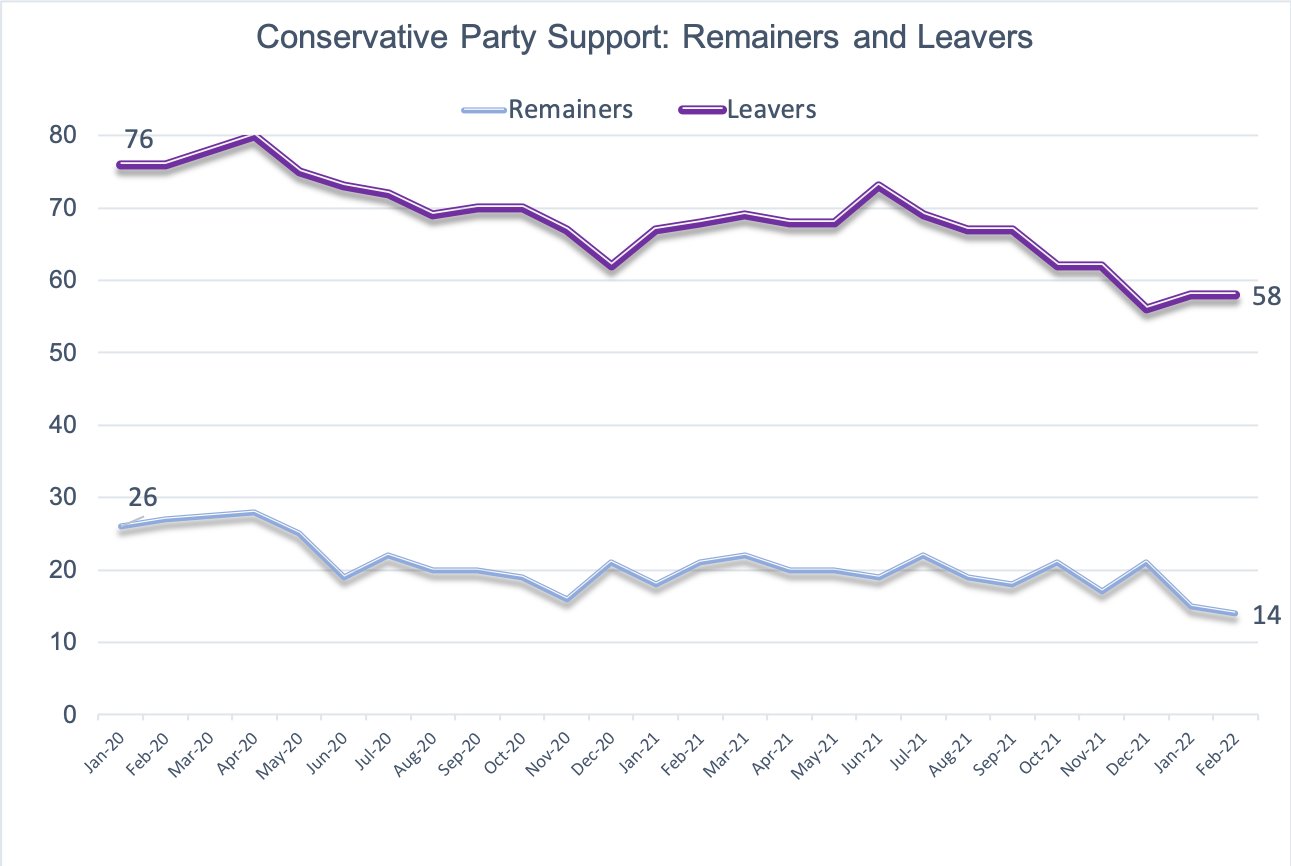
This helps to explain why the Conservatives’ strength among the (mainly pro-Brexit) working-class in 2019 – who were key to dismantling the Red Wall – has been steadily draining. Support among workers for the Conservatives is down by around 15 points. Labour is now pulling ahead.
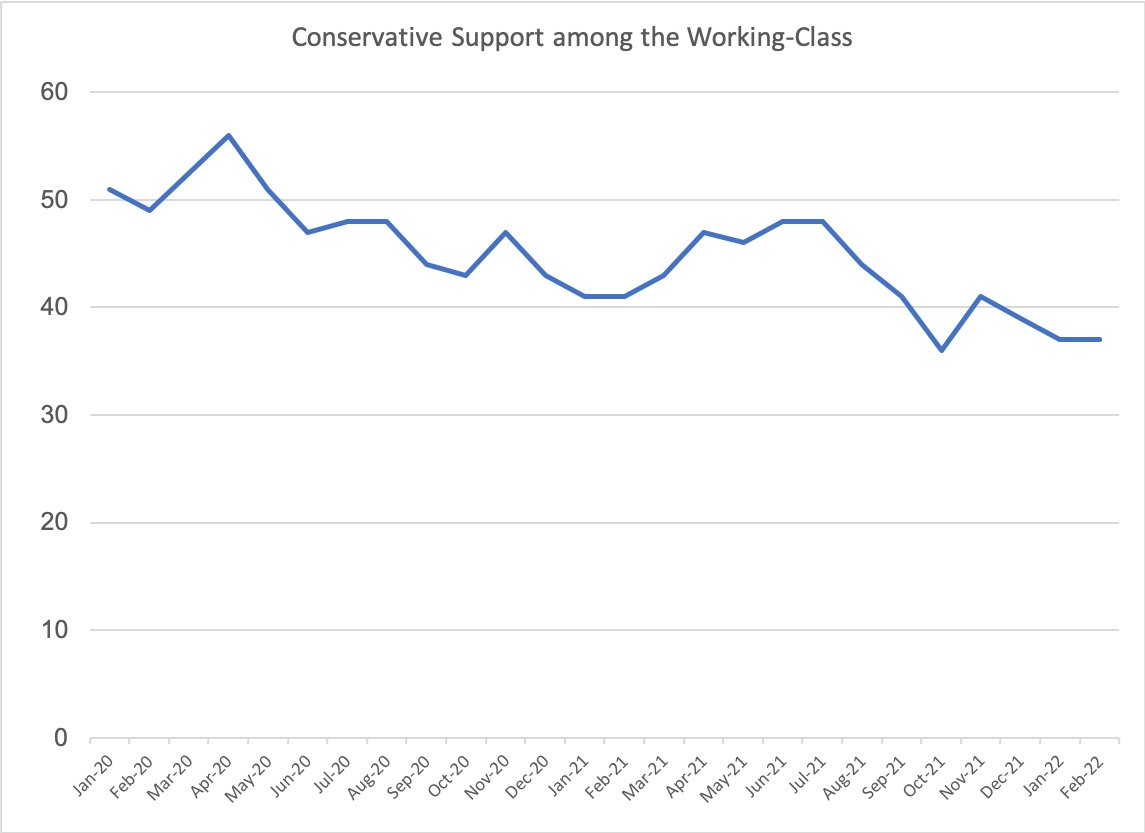
One side effect of all this is the sharp rise in the share of 2019 Conservative voters who have either drifted back into apathy, who now say they will not vote at all at the next election, or who have switched to Reform UK. The former is a much bigger group than the latter.
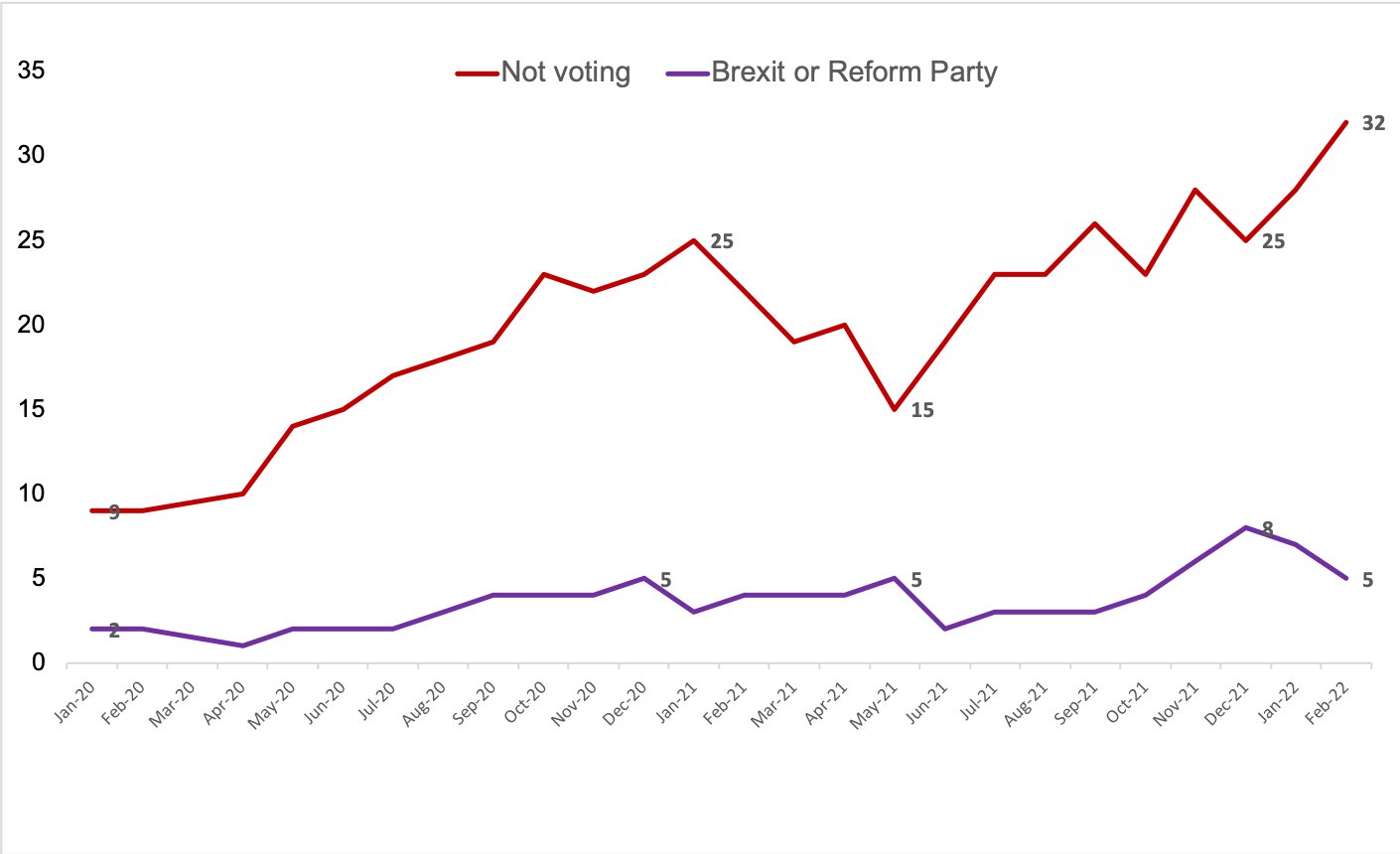
In fact, overall, the percentage of 2019 Conservatives who have drifted away has increased more than three-fold to almost 40%. When squeezed, many still say they will vote Conservative to keep Labour out of power but as in 2015, 2017, 2019 they will need to be given a reason to come back.
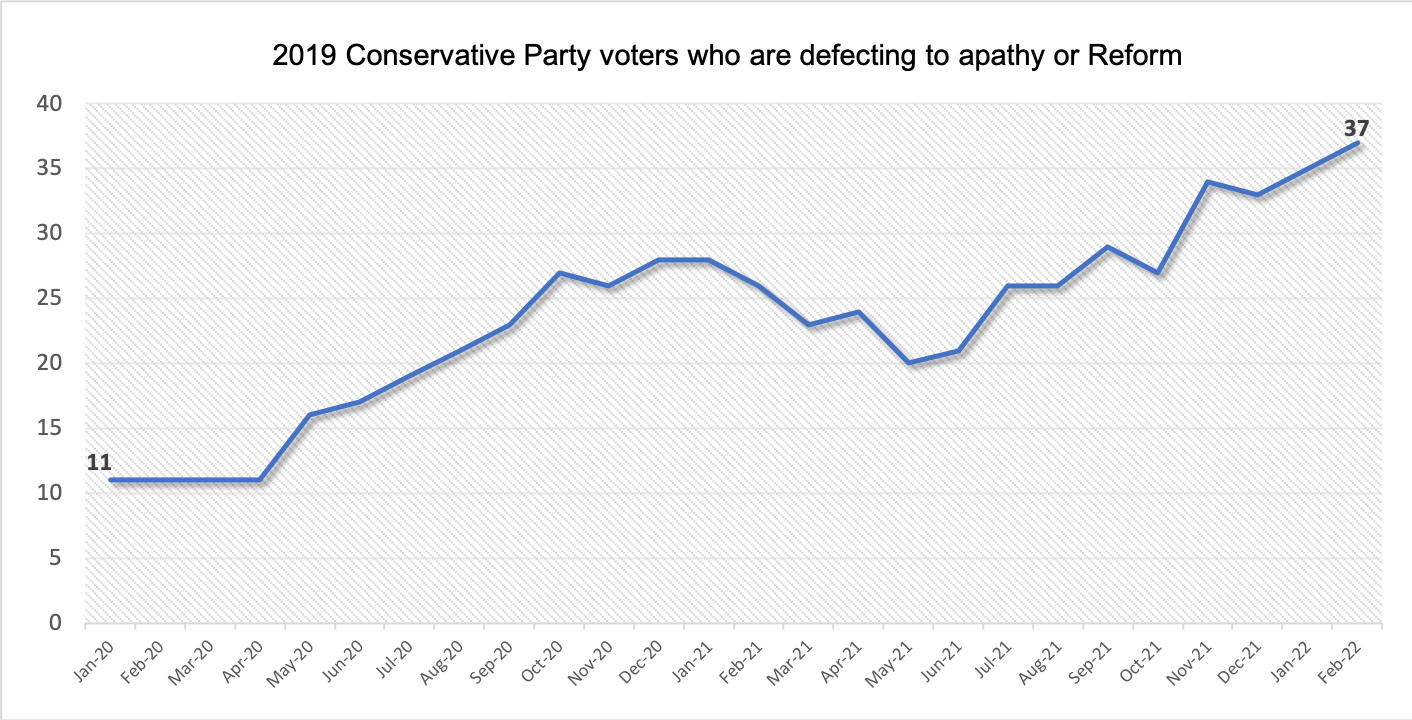
Key to that is the fact that their priorities have changed. Two years ago, when Johnson came to power, it was all about Brexit. Today, for Conservative voters, it is all about the economy, immigration and health.
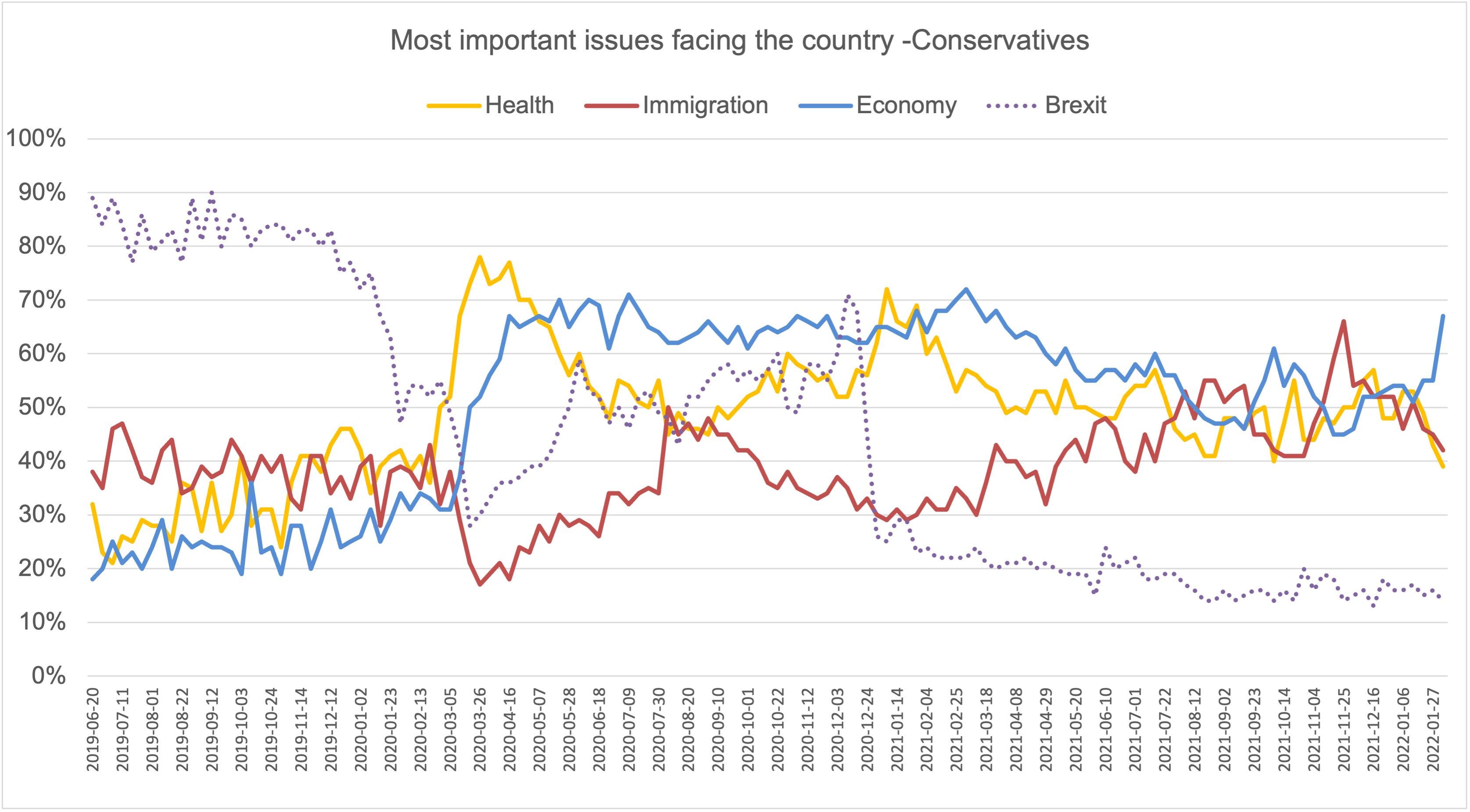
But on all of these core issues there are now very real challenges for Boris Johnson. Even on Brexit, which has been delivered, while few of all voters think it is being managed “well”, the share of Conservatives who think so is also now down by about 10 points.
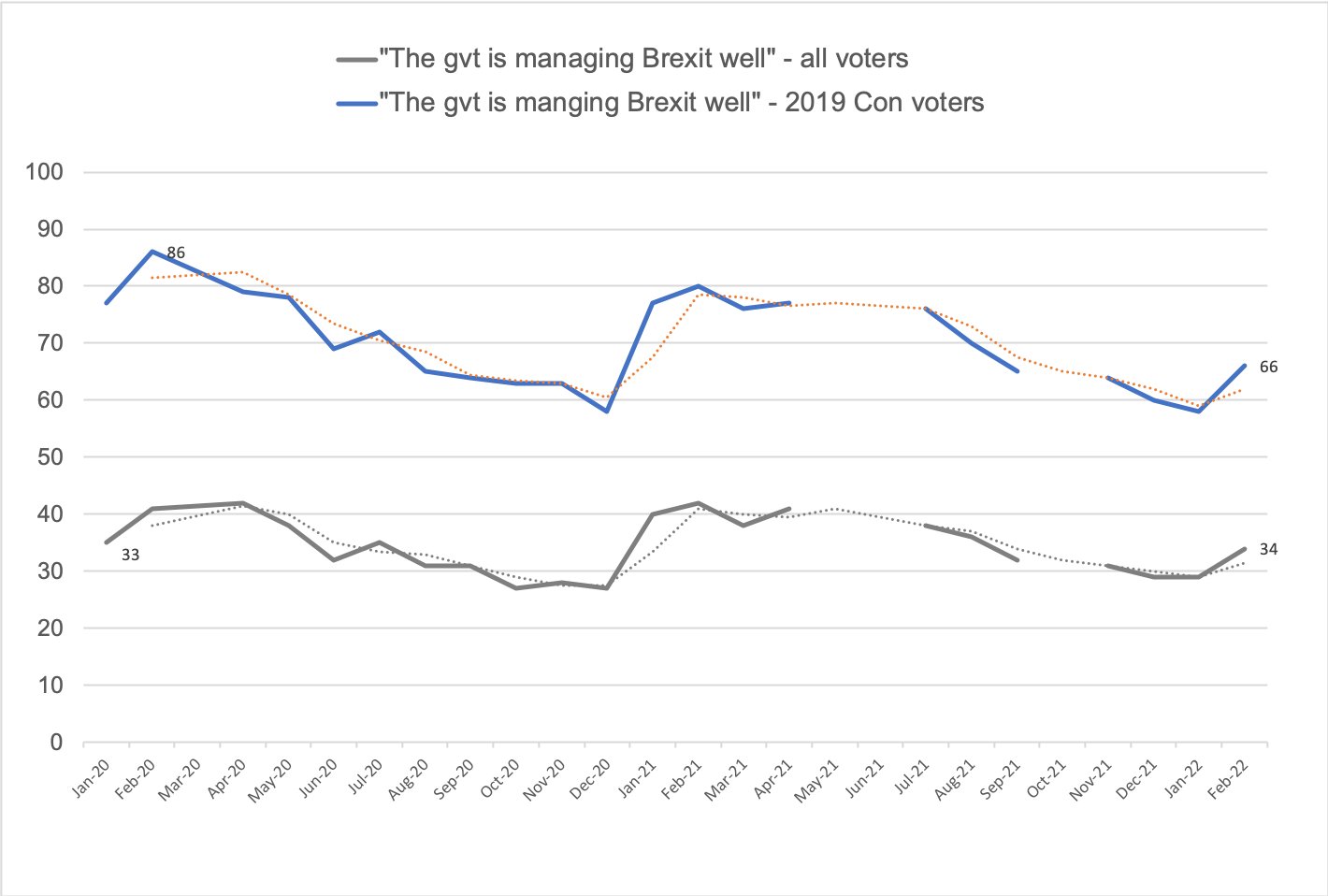
There is also a little bit of evidence of a creeping “Bregret” among Conservatives. While the share of all voters who think we were “right to Leave the EU” is broadly static, the share of Conservatives who think we were right to Brexit is down by almost 10 points.
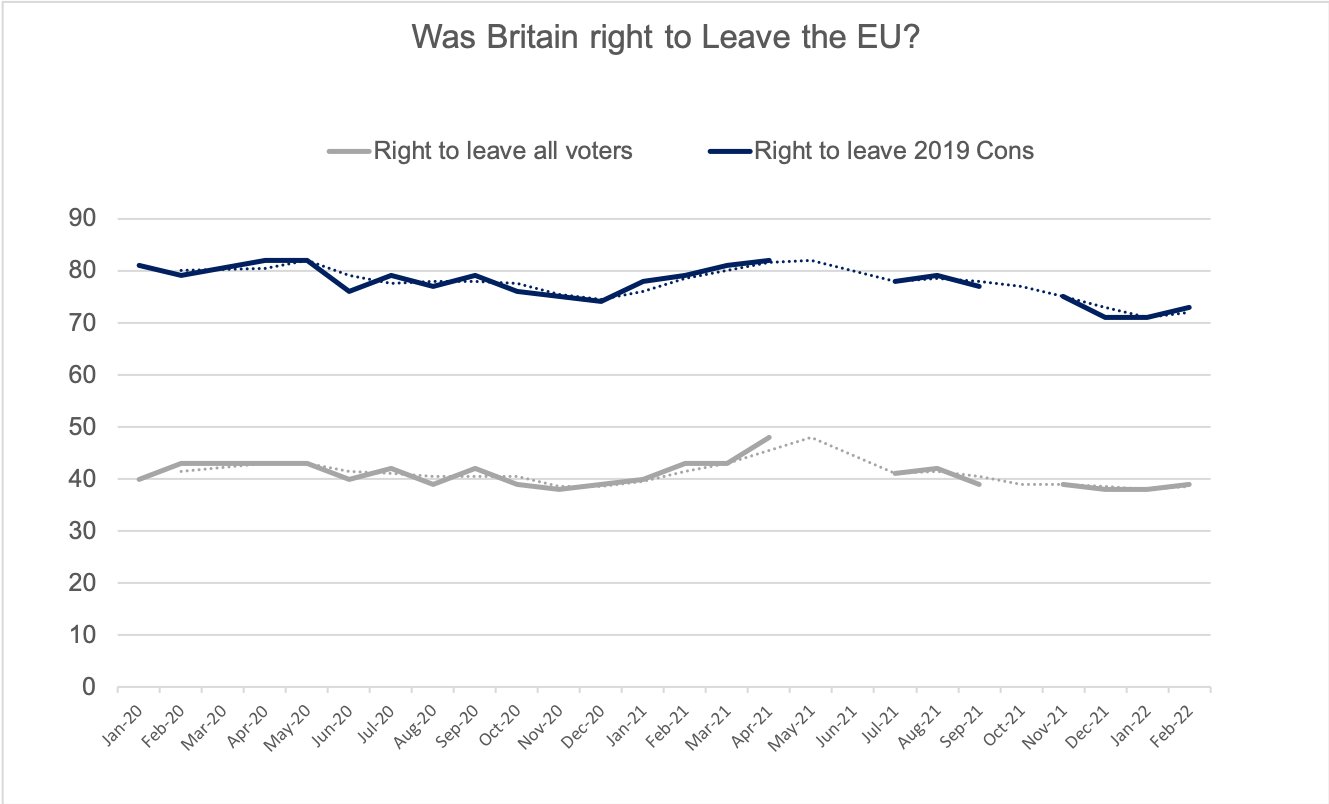
But immigration is a much bigger problem for Johnson. Since Brexit, the share of Leavers who think that the government is managing immigration “badly” has rocketed to 76%. A highly salient issue which Johnson’s core voters are very unhappy with.
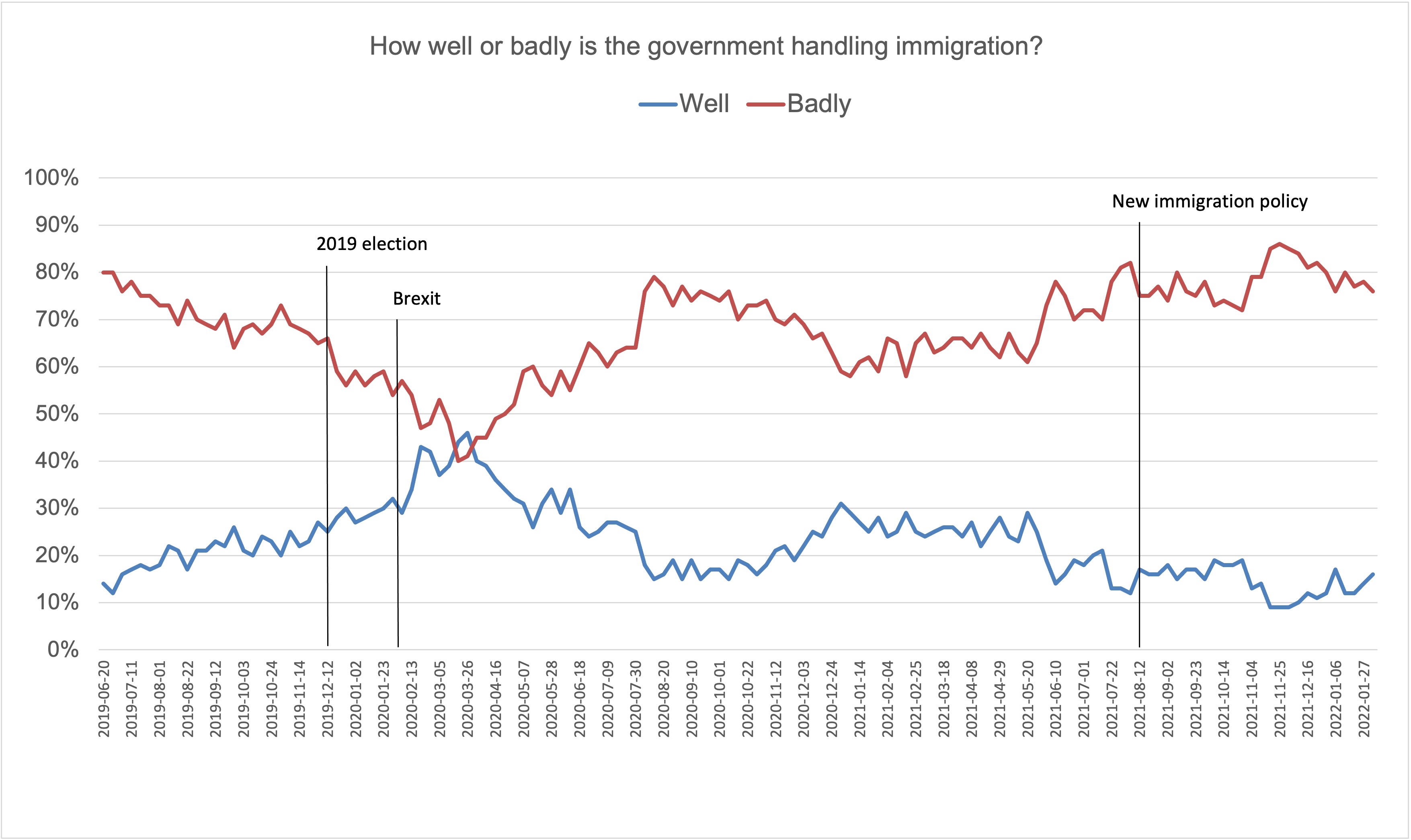
Because of this, all of the work the Conservatives put into winning back the ownership of the immigration issue from UKIP and then the Brexit Party is gone. Among Leavers, their core voters, they are no longer seen as the preferred party on immigration.
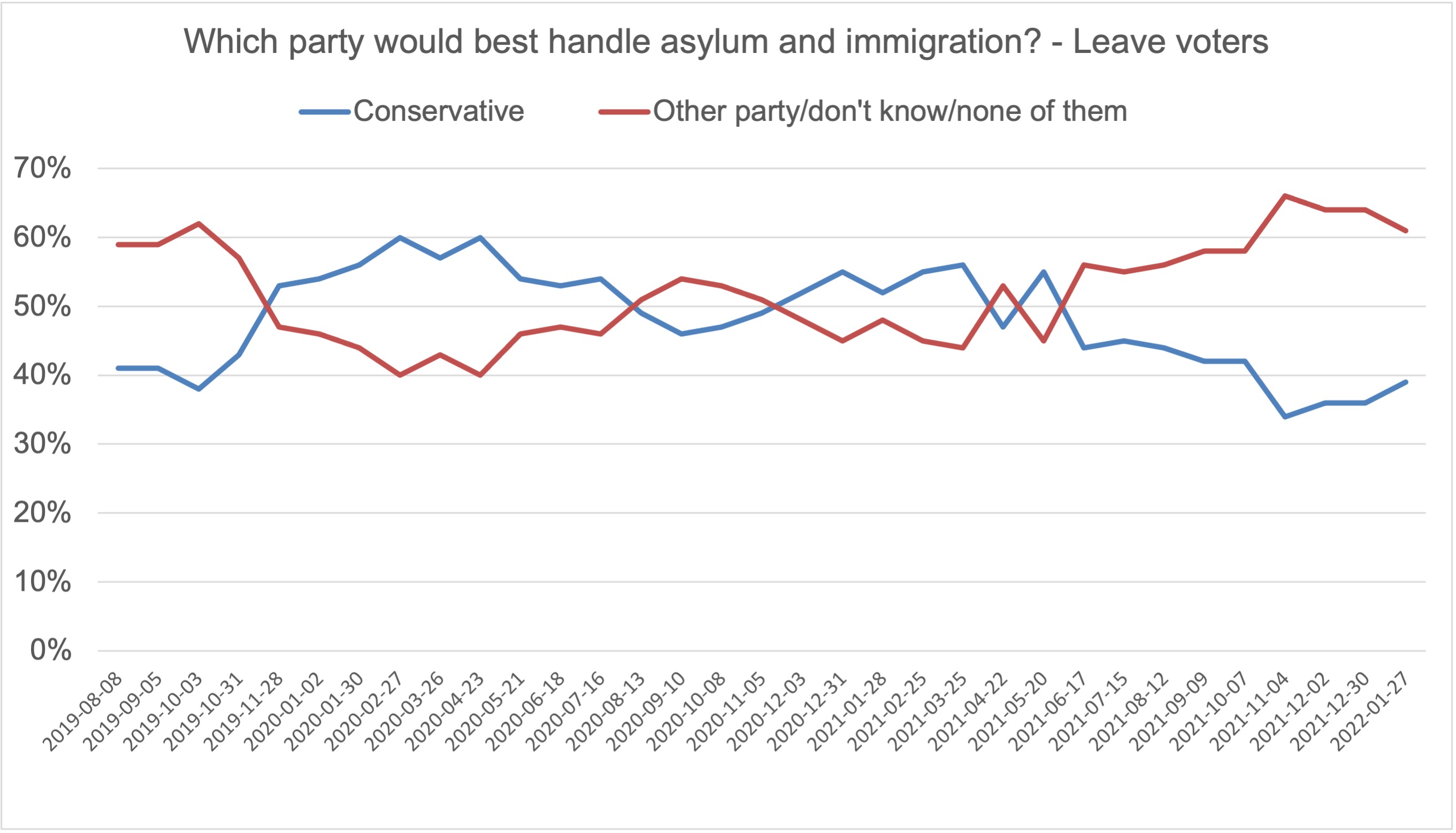
Alongside this is rapidly rising disillusionment with how the government is managing the economy as we enter a cost of living crisis and tax rises. Among all voters and Leavers, a majority now say the economy is being badly run while over 40% of Conservatives now share this view.
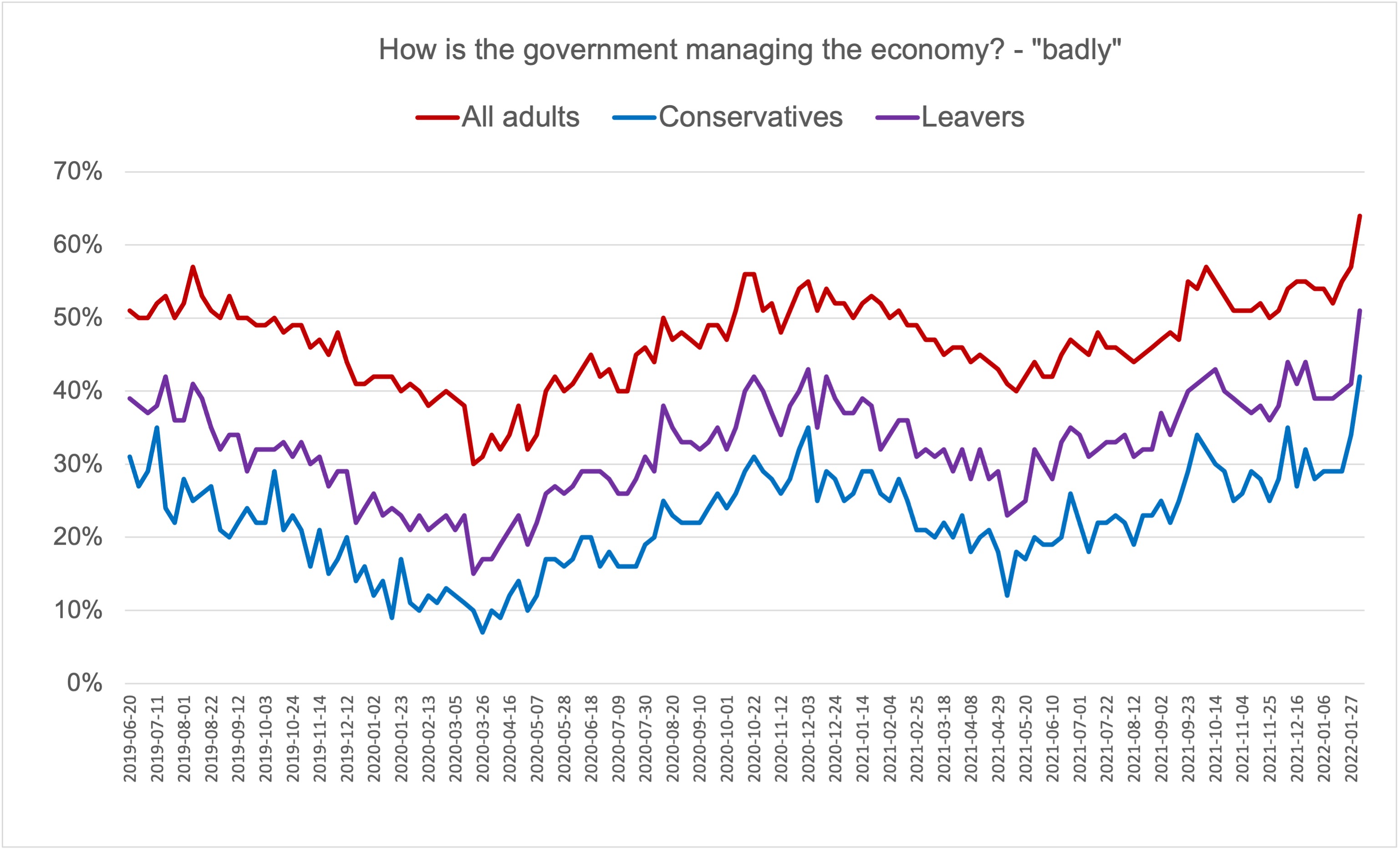
Within this, there has also clearly been a shift in the minds of Conservative voters about tax and spend. Today, for the first time since Boris Johnson came to power, a plurality now say we are taxing too much and spending too much on public services.
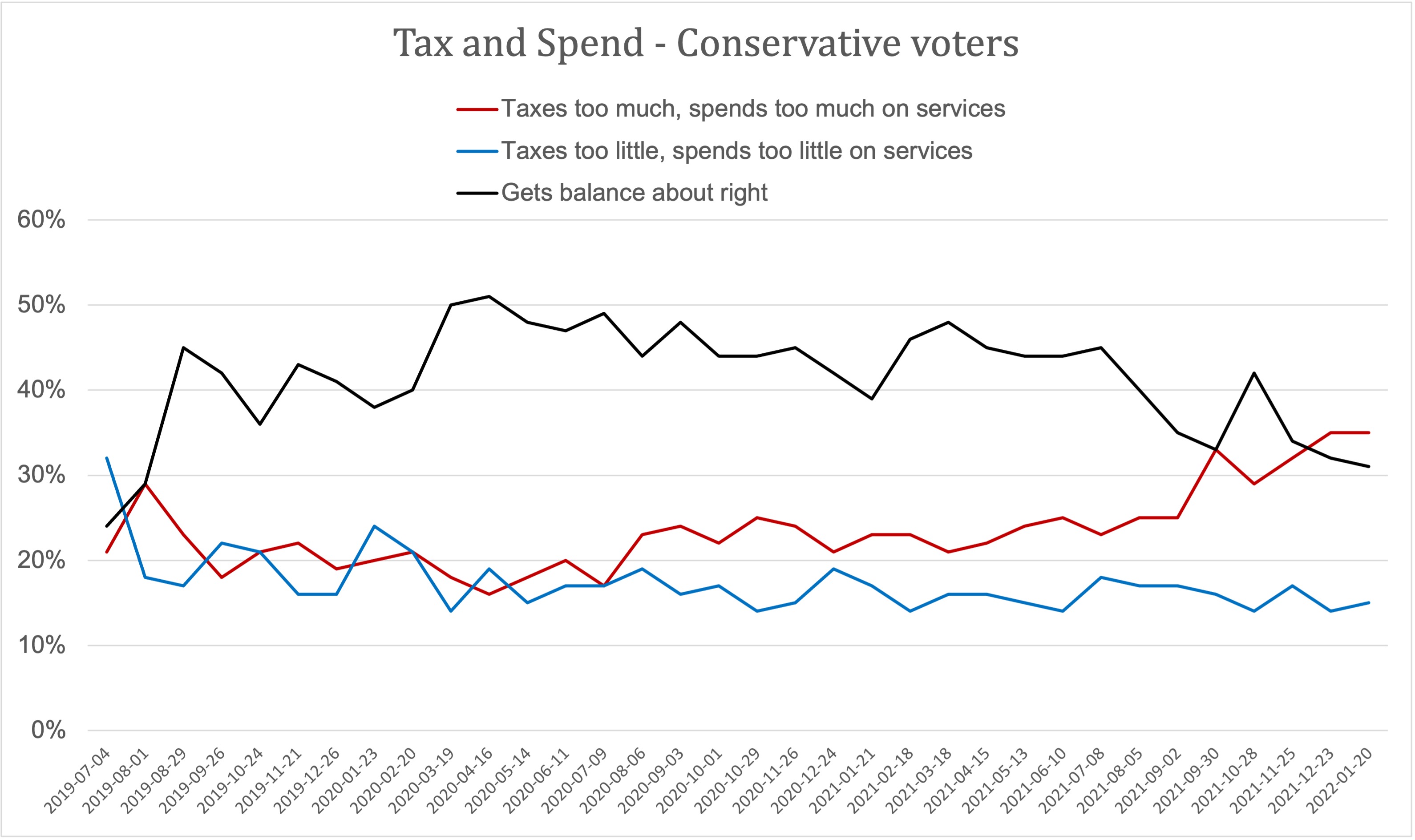
And while levelling up is not a salient issue for voters (vs economy, health, migration), it’s worth noting that while most say they do not know what levelling up means, the Leavers who concentrate in these areas are not convinced it is bringing Conservatives closer to the north.
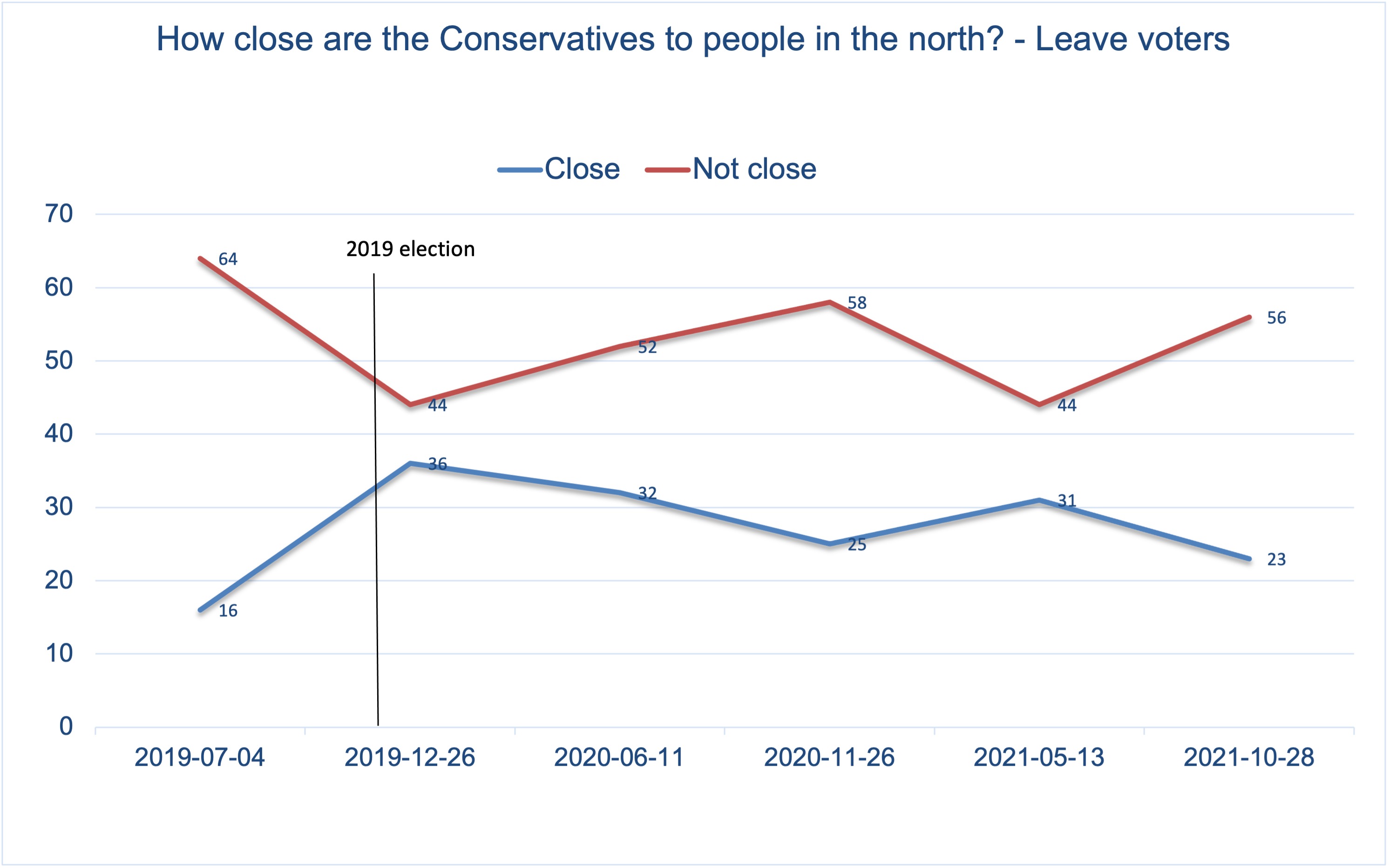
Put all of this together – economy, tax, immigration, levelling up – and it helps to explain why a rising number of Conservatives no longer think their government has a clear sense of purpose. The percentage who think it does has crashed from 82% in the spring of 2020 to just 36% today.
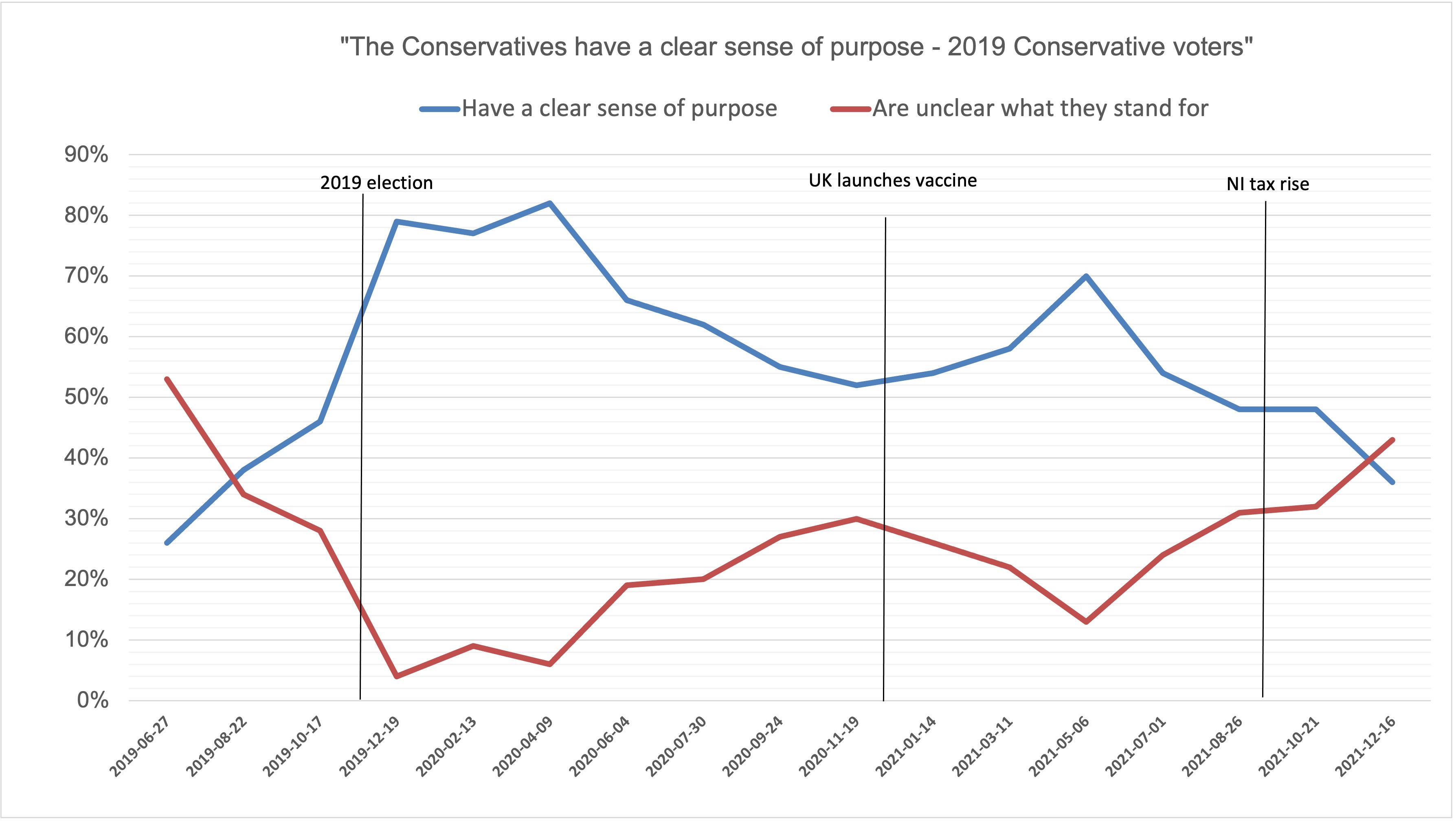
Boris Johnson is clearly at the centre of this. As he reboots his premiership he faces a rising number of his own Conservative voters who have concluded that he is incompetent. In the spring of 2020 only 31% thought so; now, 64% do.
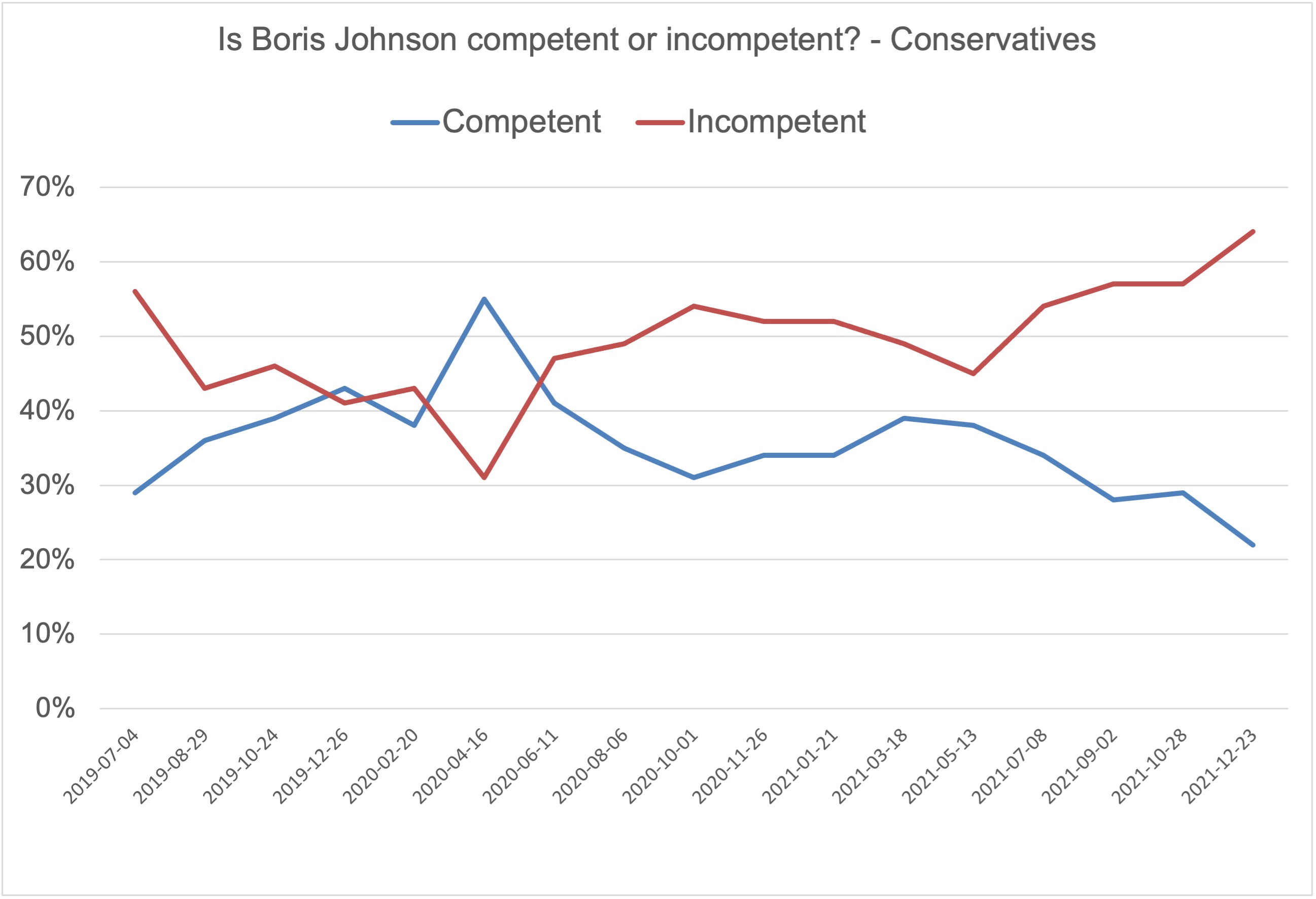
And whatever he does to tackle these core problems he will have to do them very quickly because many of his core voters – ahead of crunch local elections in the Red Wall in the spring – are clearly losing patience.
